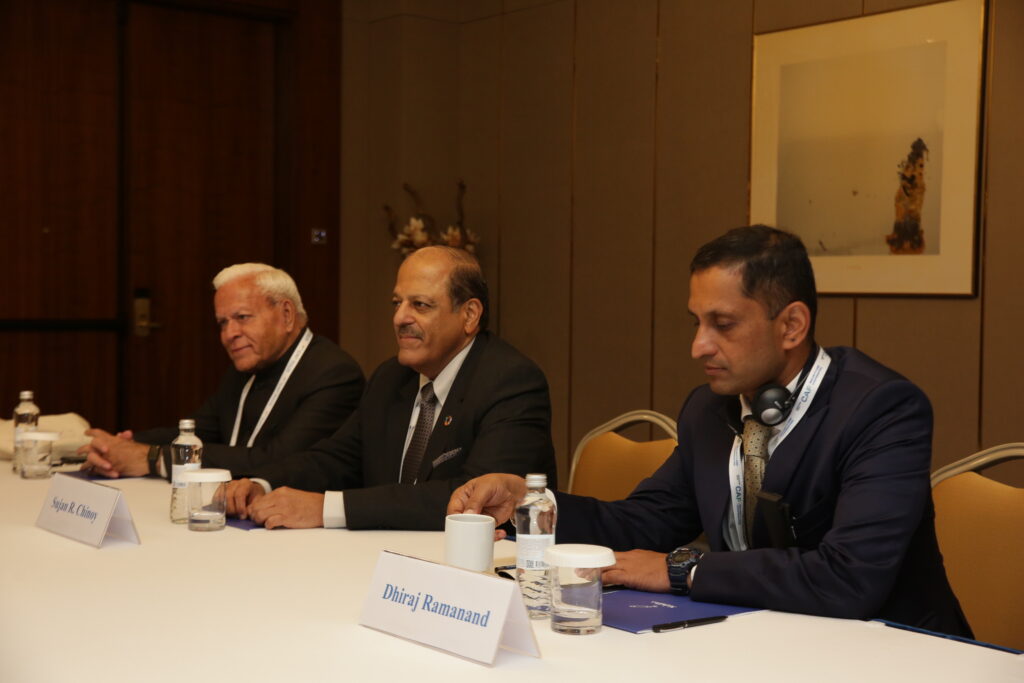Director of the Kazakhstan Institute for Strategic Studies under the President of the Republic of Kazakhstan Yerkin Tukumov today met with Indian delegation, participating in Central Asian Security and Cooperation forum.
Among the distinguished guests Ashok Sajjanhar, Former Ambassador of India to Kazakhstan, President of the Institute for Global Studies, Sujan Chinoy, Director General, Manohar Parrikar Institute for Defence Studies and Analyses.
According to the KazISS director, Kazakhstan attaches special importance to strengthening comprehensive cooperation with India and considers New Delhi as one of Astana’s key strategic partners in Asia. India is a global player, whose positions Kazakhstan needs to take into account when building an effective regional policy.
Speaking about Indian foreign policy, Yerkin Tukumov noted that this is an important diplomatic year for the friendly country. In early July, under the chairmanship of Indian Prime Minister Narendra Modi, a summit of leaders of the SCO member countries was held in a virtual format. In August, India will participate in the BRICS summit to be held in South Africa, and in September, New Delhi will host the summit of leaders of the Group of Twenty (G20). Kazakhstan is one of the countries that applied for BRICS membership. “We believe that Central Asia should be represented in the organization and as a leading economy in the region, Kazakhstan is keen to strengthen Central Asia’s economic role in BRICS. In this regard, we have similar views with India as India is also focused on economic ties within BRICS,” the KazISS director added.
During the meeting, the parties talked about the need to strengthen cooperation at the expert level between the think tanks of Kazakhstan and India. An important task today is to create effective communication channels between the two countries, and the establishment of interaction between Kazakh and Indian intellectuals is a significant step in this direction. The parties expressed readiness to develop expert-analytical partnership both in bilateral and multilateral formats.



